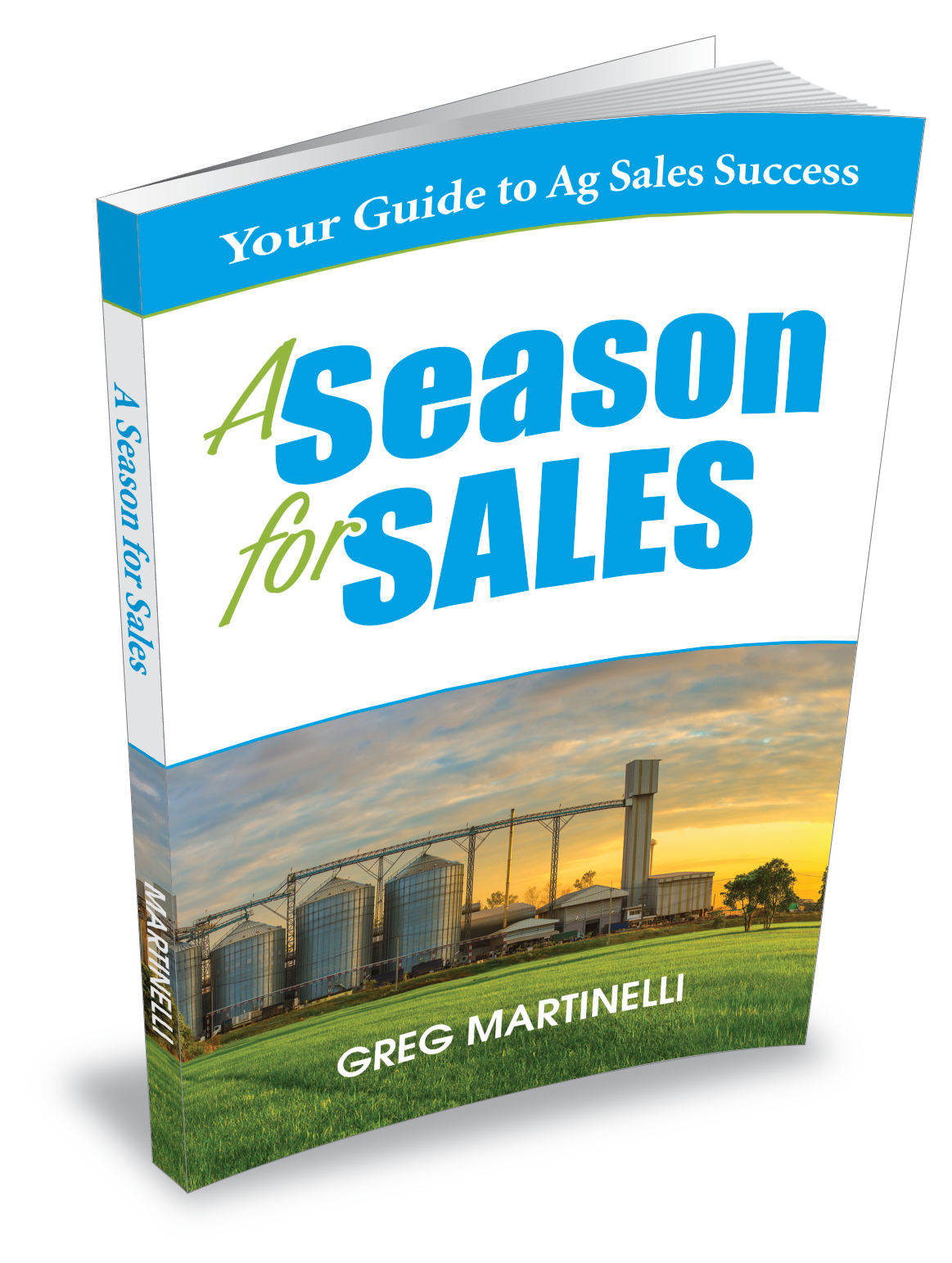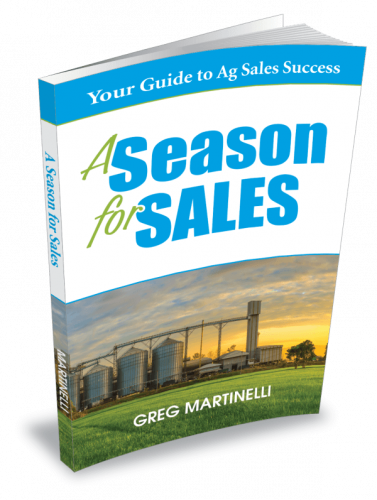Check your prospect’s RAP sheet
Take a historical tour of your prospect’s prior actions
In training workshops, I always recommend that you take a tour of your prospect’s farm or agribusiness whenever possible. It gives you a chance to see firsthand what is going on in their operation and opens up a lot of opportunities to ask questions. In addition, it gets the prospect talking about their favorite subject: themselves. Today, I want to talk about taking a historical tour with your prospect.
Every cop show on TV has that moment when they identify their prime suspect. Columbo, McCloud, Miami Vice, Cold Case Files, the Black List, CSI, and even Reno 911 all have that one moment when they find their prime suspect. What’s the first thing they ask about or refer to? The suspect’s RAP Sheet.
If you’re truly not familiar, the RAP sheet stands for “Record of Arrests and Prosecutions”. Why is this so important in police shows and in real life investigations? Because past history indicates a precedence towards a behavior. If you are investigating home break-ins and your suspect has a long history of breaking into homes and stealing electronics, there is a higher likelihood that you have the right person.
Now, let’s take that concept and apply it to your selling skills. In addition to taking a physical tour of your prospect’s farm, ask about their past history (RAP Sheet) in three key focus areas:
Prospect’s RAP Sheet on:
- Your company
- Your products or services
- Your competitive advantage
The first two are so obvious once you think about it. However, many salespeople don’t. Too often, while working with a salesperson on a coaching ride along trip, I will ask if the salesperson did a background check on a prospect to see if they had done business with their company. Way too often, the answer is no, they didn’t check. That’s a big mistake. By doing just a little bit of computer work or making one phone call, you can find out a lot about a prospect’s previous dealings with your company. If there’s no internal info, then this is one of the first areas to dig into with a prospect as you start to ask questions.
This is especially true of co-ops or multi-product line agribusinesses. Farmers know where the grain elevators and Ag retailers are in a market. If your co-op is 100 years old and your prospect is 60 years old, it’s highly likely they are very aware of your coop location or your agribusiness. This line of questions uncovers any bias they have for or against your company. Clear that air first.
Now, get into their understanding and past history (RAP Sheet) on your products or services. If you are selling a product line that has a 20-year history in the area, the odds are high that your prospect has seen them, maybe bought them, but decided not to use them. Why? That’s the million-dollar question. Again, you want to understand their bias for or against your products and services. This understanding is huge as you begin to tell your prospect all about your wonderful company, products and services.
These first two areas give you a lot to go on. So important, they may take up all of your first sales call on a prospect. Remember, you can present the greatest product in the world to the most perfect prospect for it. Yet, fail because they have a strong negative opinion of your company. You can have the best price in the world on a data management software program. Yet, lose the sale because your prospect thinks they are all a waste of time and money.
Clear those two hurdles first. Now, let’s focus in on why they should buy from you…. your Competitive Advantage.
This has become one of the most pivotal moments in training workshops. So much so, I put it right in the beginning. Mostly, because I think it’s where a salesperson should start. I’ll ask the group, “Why should your prospect buy form you and why should they buy from your company?” I either get blank stares or I get a laundry list of things like: we care about our customers, we take care of our customers, we’re honest, etc. None of these are unique. Every company thinks they like and take care of their customers. Next, I might get a list of the company tag lines used by the marketing department: “we are the global leader…we are feeding the world……we are the supplier of choice”, etc. Those are great for you to understand the mission of your company, but rarely has anything to do with your competitive advantage.
Back to the drawing board, I push one more time for them to come up with their unique competitive advantage. Finally, we get a breakthrough as someone says: “I’m local and know this specific area better than any other salesperson…. I answer my phone no matter when they call…. we have a proprietary software program that merges financial, agronomy and commodity market data into one program.”
Now you have something to sell on. But first, you have to look at their RAP sheet on this advantage. “Have they ever worked with a software that combines these three areas? How often do they need to contact their supplier in off hours? What happens when they can’t reach them? Have they ever considered using someone local? How did it go?” Since they are not using one now, ask “what led them to their current choice in a supplier?”
Seek First to Understand vs. Show Up and Throw Up
In the early years of selling, I got caught in the “Show up and Throw up” trap too often. I made a prospect call to tell them all about my company, my products and myself. At the end of my great presentation, I heard:
- “We tried that once and didn’t care for it”
- “We tried using your company once and had a problem”
- “I don’t believe in any of that fufu dust”
If your prospect has been in the business for many years, or decades, then the odds are likely they have past history or an opinion on your company, your products, and your service.
Start with their RAP sheet before you ever get into presenting.
If this blog helped you on your journey to being more effective in your selling, I ask you to share it with those who might also benefit from it.
Sign up for my weekly blog and podcast using the links on this page
As a final request, take a look at the newest book on the market written specifically for you!
A Season for Sales: Your Guide to Ag Sales Success
The only book written specifically for the Ag Sales Professional, by an Ag Sales Professional!



